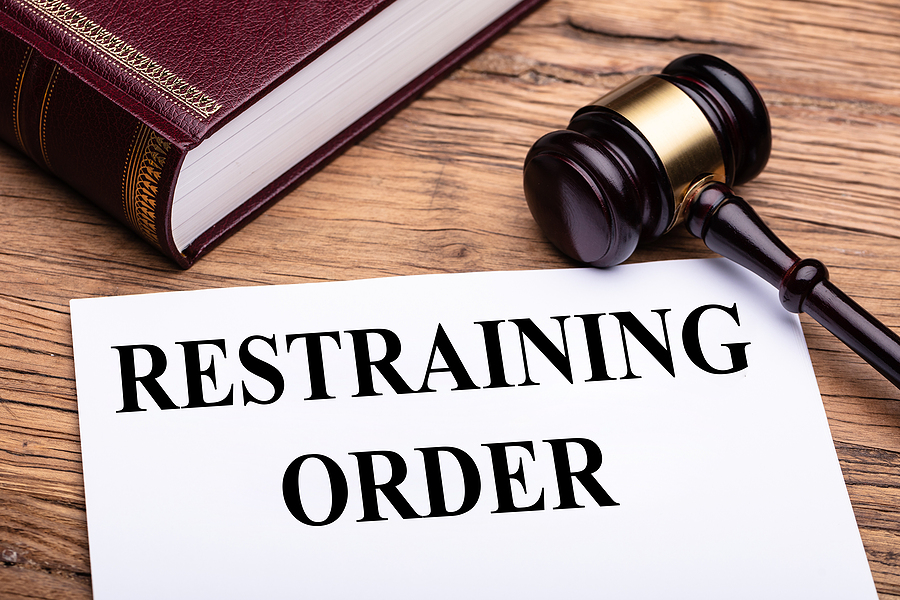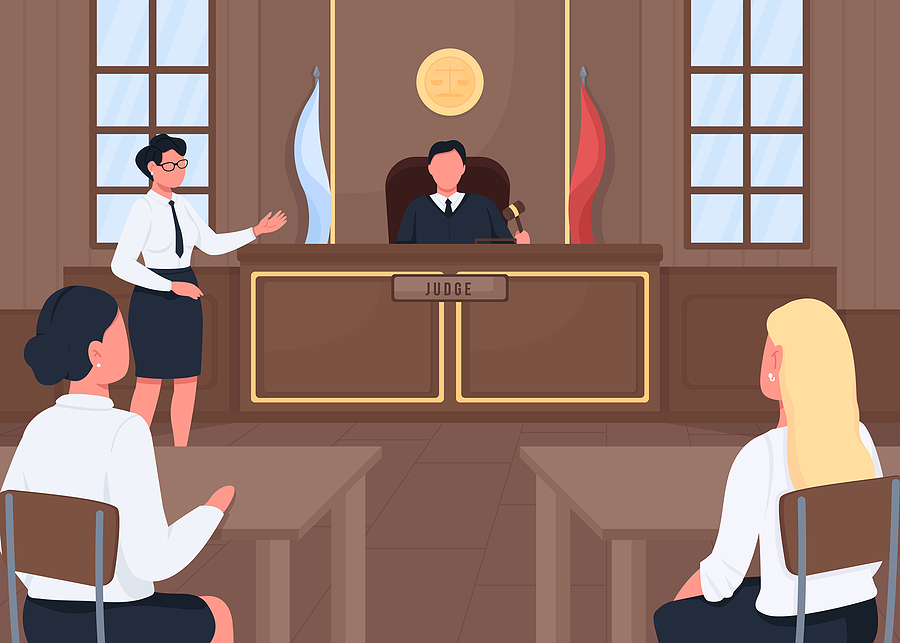Have you recently had some toxic relationship troubles? Or perhaps a person at work feels threatened by you? Maybe a family reunion over the holidays went bad at some point in the celebratory revelries? Regardless of the circumstances that got you here, facing a restraining order is not something anyone wants to deal with. Unfortunately, just about anyone can petition for a protective order against another person, so long as they have valid justification to do so. But what makes a restraining order request valid in the eyes of the law? Or at least the presiding judge?
Continue reading to learn more about restraining orders, including what is needed to officially put one into motion, and what to do if you violate one.

Restraining Orders are Court-Ordered Documents
A restraining order is a court-ordered document that legally mandates a defendant (the person the order is against) to stay a specified distance away from the plaintiff (the person filing the order). In most cases, such orders are issued in situations of domestic violence or stalkers. However, they are often issued in legal matters regarding bullying, harassment, provocation, voyeurism, and similar threatening behaviors. It is against the law for a person named in a restraining order to violate any of the terms decreed.
The Process of Filing for a Restraining Order
The process of filing a restraining order is very similar to any other type of court filing process. You would go to the local courthouse, fill out the proper documents given to you by the clerk, and submit the paperwork as instructed. From there, a hearing will be scheduled in which you and the person named in the restraining order will be mandated to appear.
After delivering the facts of the case, the judge will decide if you have provided valid facts that justify granting you a restraining order against the defendant. At this same hearing, the defendant will also have the opportunity to tell their side of the story. If you are the one named in the order, it is vital to have a criminal defense lawyer represent you at this hearing.
Types of Proof
The person filing for a restraining order holds the burden of proving that they are indeed in some form of danger. They must provide facts to the judge that show the defendant is threatening and unwilling to stay away at the plaintiff’s repeated requests. Such proof might include text messages, emails, witness statements, photographs, surveillance video, police reports, and medical records. Word of mouth is not enough to convince a judge to grant a restraining order against a person.
Temporary Restraining Order (TRO)
A temporary restraining order (TRO) is basically the same thing as a standard restraining order, with the only real difference being time. Standard restraining orders, once granted, are kept active until the filer drops the order of protection. Temporary restraining orders are short-term, and only remain in effect for 15 to 20 days. They are mostly used in situations of domestic violence, as well as victims of verbal, emotional, and mental abuse.
Protective Orders Vs. Restraining Orders
Protective order is just another term for restraining order. The exact term used in court proceedings varies among jurisdictions, but they do mean the same thing. Here in Indiana, we use the term, protective order.
What to Do if You Violate a Protective Order in Indiana
Call the Law Office of David E. Lewis at 317-636-7514 to learn how to protect yourself after violating a restraining order in Indianapolis, Indiana. Attorney David E. Lewis offers free initial consultations, so you do not have to pay anything to simply talk to a lawyer and get advice on how to approach your potential or pending charges. Call 317-636-7514 to schedule your online, over-the-phone, or in-office appointment, today.





